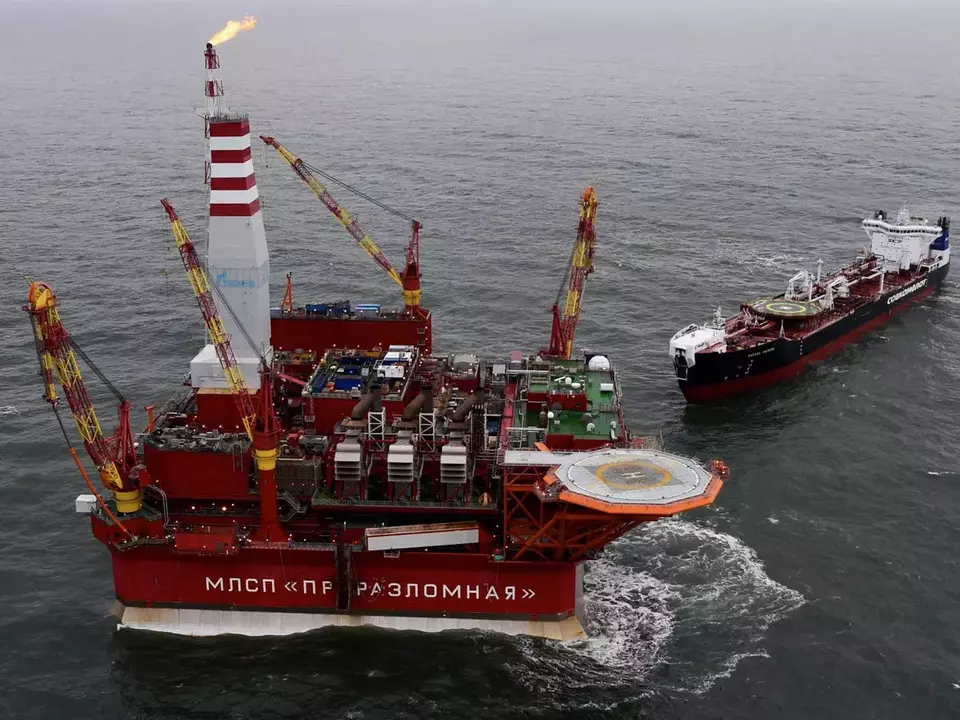The Impact of U.S. Sanctions on Russia’s Arctic Oil Business
The maritime industry is facing significant shifts as geopolitical factors influence global oil trade. Recent U.S. sanctions on Russia’s tankers and depots have sent ripples through the Arctic oil sector, disrupting supplies and impacting Asian buyers. This post explores the implications of these sanctions on Russia’s Arctic oil business and the broader maritime industry.
Understanding the Sanctions and Their Targets
The latest U.S. sanctions targeting Russia’s oil sector are some of the toughest to date, focusing on major producers like Gazprom Neft and Surgutneftegas, as well as 183 vessels involved in shipping Russian oil. These sanctions directly impact three key Arctic oil grades:
- Novy Port: Produced by Gazprom Neft.
- ARCO: Also from Gazprom Neft.
- Varandey: Produced by Lukoil.
These grades account for approximately 300,000 barrels of output per day, representing a tenth of Russia’s seaborne oil exports.
Unique Logistics of Arctic Oil Transportation
The Arctic oil business relies on specialized infrastructure and vessels due to harsh environmental conditions. Novy Port crude, for instance, is transported from Gazprom Neft’s Novoportovskoye field, where temperatures can drop to -55°C. The oil is shuttled by ice-class vessels to floating storage facilities near Murmansk, such as Umba and Kola, before being offloaded to larger vessels for international shipment.
The sanctions have targeted both the Umba and Kola facilities, along with more than a dozen small tankers crucial for this shuttle service. These vessels are uniquely designed for northern sea operations, making them irreplaceable in the short term.
Implications for Asian Buyers and Global Oil Prices
The disruption in Russia’s Arctic oil supply chain has significant implications for Asian buyers, particularly India and China, who have been major consumers of these high-quality, light oil grades. With India and China reluctant to accept oil from sanctioned tankers, they are now seeking alternatives, which could drive up prices for similar oil grades like the U.S. WTI.
Key points to consider:
- India had reduced U.S. oil purchases in favor of cheaper Russian barrels but is now reconsidering its strategy.
- The absence of Russian Arctic oil grades in the market may lead to increased demand for WTI and other light oil grades.
- Limited storage capacities at Arctic oil projects may force output cuts if disruptions persist.
Potential Workarounds and Long-Term Effects
Given the export-oriented nature of Arctic oil projects, the lack of a domestic pipeline system presents additional challenges. Supplies could technically be shipped to southern Russian refineries via sea, but this option is costly and limited in volume. Lukoil’s Varandey oil supplies could be loaded directly from the Varandey terminal to international markets, but this would require time and replacement tankers.
Long-term effects could include:
- Increased reliance on floating storage solutions.
- Potential curtailment of oil output by Gazprom Neft.
- Higher costs and logistical challenges for Lukoil’s Varandey oil supplies.
Conclusion
The U.S. sanctions on Russia’s Arctic oil business have far-reaching implications for the maritime industry, affecting everything from vessel operations to global oil prices. As Asian buyers seek alternatives and Russia grapples with logistical challenges, the maritime sector must adapt to these geopolitical shifts. The situation underscores the interconnected nature of the global oil trade and the maritime industry’s crucial role in navigating these complexities.
- Analysis-Russia’s Arctic Oil Feels the Chill From U.S. Sanctions
- Russia’s Arctic Oil Feels The Chill From U.S. Sanctions
- Russia’s Arctic oil feels the chill from U.S. sanctions
- Analysis-Russia’s Arctic oil feels the chill from U.S. sanctions By Reuters
- Duke Energy at center of class action lawsuit over data breach – Yahoo
- Greek PM makes fresh plea to EU to address power price differences
- Analysis-Russia’s Arctic oil feels the chill from U.S. sanctions
- Inflation fears take a chill pill – MarketScreener
- Oil Shipping Rates Surge After US Sanctions Hit Availability
- Analysis-Russia’s Arctic oil feels the chill from U.S. sanctions


Leave a Reply